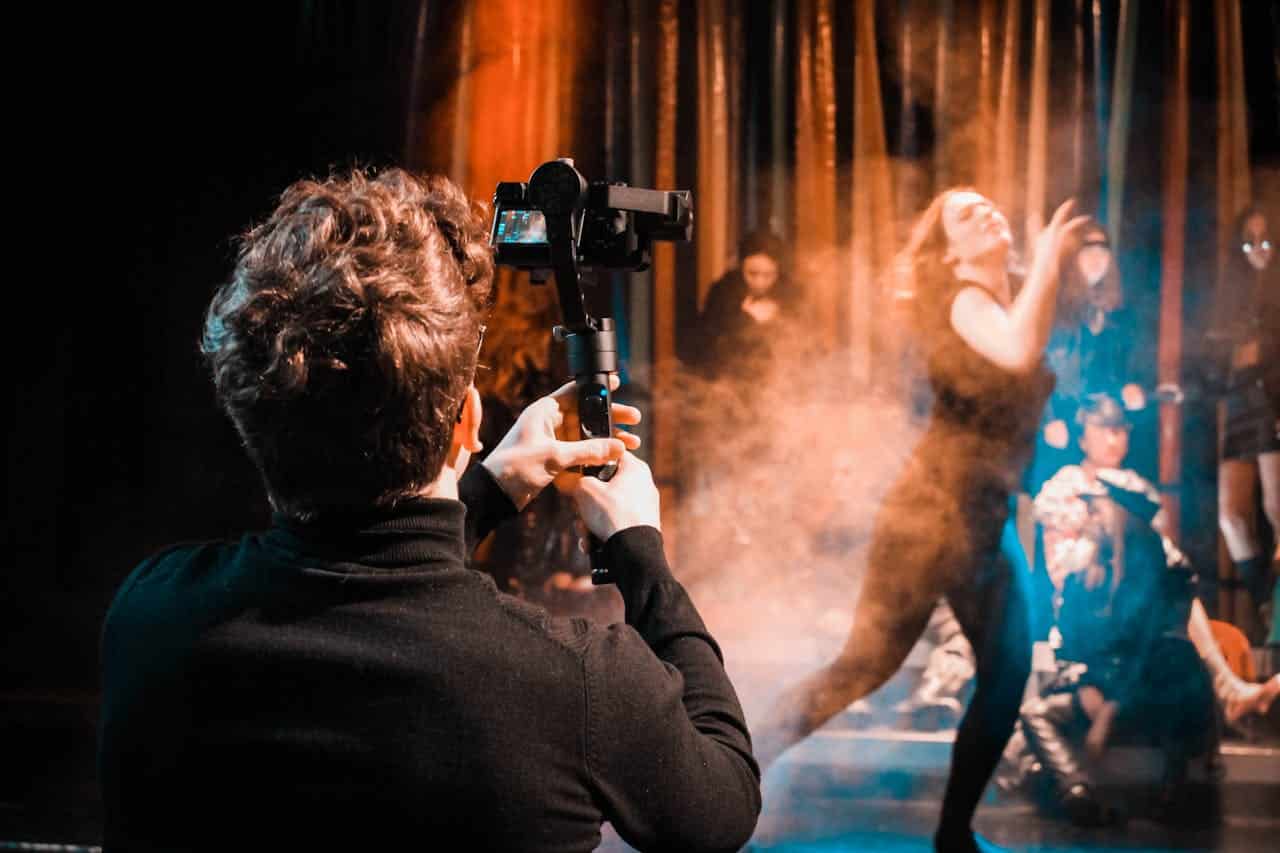Lecce, located in the Salento region of southern Italy, is renowned not only for its stunning Baroque architecture but also for its vibrant cultural life. The city offers a variety of venues, from ancient amphitheaters that echo the Roman era to modern experimental theaters. Lecce’s deep-rooted theatrical tradition and artistic expression are an integral part of the broader Salento cultural identity. This article delves into 16 of Lecce’s most important cultural and theatrical venues, each a reflection of the city’s historical depth and artistic richness.
Teatro Politeama Greco
The Teatro Politeama Greco in Lecce is a cornerstone of Southern Italy’s cultural history, second only to the famed Teatro San Carlo in Naples. Established in 1884 as the “Teatro Principe di Napoli,” the theater was a response to growing public demand for a venue that could accommodate large audiences and host high-quality operatic performances. Its inaugural performance, Giuseppe Verdi’s Aida, set the stage for a legacy of prestigious productions, attracting renowned artists like soprano Erminia Giunti-Barbera and tenors Francesco De Santis and Tito Schipa. Over the years, the theater became a beloved hub for opera, classical music, and theatrical performances, drawing some of the most celebrated names in the performing arts, including conductors like Pietro Mascagni and singers like Katia Ricciarelli and Nicola Martinucci.
Throughout its history, Teatro Politeama Greco has undergone numerous renovations, the most notable being in 1913 when it was transformed from a wooden structure to a stone edifice, enhancing both its capacity and aesthetic appeal. Further upgrades over the years have equipped the theater with modern amenities, including advanced stage technology and climate control, ensuring that it continues to serve as a premier venue for cultural events in Lecce. Today, the theater hosts a diverse array of performances, from opera and ballet to contemporary concerts and theatrical productions, while maintaining its historical charm and architectural beauty.
in Lecce is a cornerstone of Southern Italy’s cultural history, second only to the famed Teatro San Carlo in Naples. Established in 1884 as the “Teatro Principe di Napoli,” the theater was a response to growing public demand for a venue that could accommodate large audiences and host high-quality operatic performances. Its inaugural performance, Giuseppe Verdi’s Aida, set the stage for a legacy of prestigious productions, attracting renowned artists like soprano Erminia Giunti-Barbera and tenors Francesco De Santis and Tito Schipa. Over the years, the theater became a beloved hub for opera, classical music, and theatrical performances, drawing some of the most celebrated names in the performing arts, including conductors like Pietro Mascagni and singers like Katia Ricciarelli and Nicola Martinucci.
Throughout its history, Teatro Politeama Greco has undergone numerous renovations, the most notable being in 1913 when it was transformed from a wooden structure to a stone edifice, enhancing both its capacity and aesthetic appeal. Further upgrades over the years have equipped the theater with modern amenities, including advanced stage technology and climate control, ensuring that it continues to serve as a premier venue for cultural events in Lecce. Today, the theater hosts a diverse array of performances, from opera and ballet to contemporary concerts and theatrical productions, while maintaining its historical charm and architectural beauty.
Teatro Apollo
Teatro Apollo is one of Lecce’s most iconic cultural landmarks, known for its neoclassical architecture and rich history. Designed by engineer Tassoni and constructed by Maestro Vincenzo Cappello, the theater was inaugurated on May 15, 1912. Its grand façade, featuring a columned portico and elegant wooden ticket booths, instantly became a centerpiece of Lecce’s vibrant arts scene. After closing in 1986, the City of Lecce purchased the building in 2003 and began a large-scale renovation in 2008. During these renovations, Neolithic artifacts were discovered, transforming part of the theater into a museum that celebrates both its artistic and archaeological significance.
Reopened in 2017 with a grand ceremony attended by Italian President Sergio Mattarella, Teatro Apollo now stands as one of Lecce’s premier venues for cultural events. Its beautifully restored interiors, combined with modern upgrades for superior acoustics, make it a favorite destination for opera, classical concerts, and theater. The theater’s seamless blend of historical elegance and modern amenities attracts both local and international audiences, solidifying its role as a key institution in the cultural fabric of Lecce and the greater Salento region. Ticket and event calendar.
Teatro Paisiello
Teatro Paisiello in Lecce is truly a hidden gem in the heart of the historic center. Visitors often describe their experience as one filled with warmth and hospitality, as they are sometimes given the opportunity to explore the inside of the theater, even without a scheduled performance. Many have shared their gratitude for the kind staff, who turn on the lights to showcase the beautiful interiors, enhancing the magic of the visit. The elegant architecture and intimate atmosphere make the theater a must-see for those wandering through Lecce, with some calling it “the cutest theater ever”.
While small in size, the theater’s charm lies in its rich history and close connection with its audience. Its 320 seats provide an intimate setting where visitors feel a close proximity to the performers, allowing for a deeper engagement with the show. Many visitors express a desire to return and experience an opera or theatrical performance here, as the venue’s acoustics and ambiance are highly praised. Overall, Teatro Paisiello is celebrated for its beauty, both inside and out, making it a jewel of Lecce’s cultural landscape
Ex Convento dei Teatini (Chiostro dei Teatini)
The Ex Convento dei Teatini is a remarkable cultural venue located in the heart of Lecce, along Corso Vittorio Emanuele II, a major thoroughfare that connects Piazza Sant’Oronzo to Piazza Duomo. Originally built in the late 16th century by the Teatini monks as part of their efforts to spread the principles of the Counter-Reformation, the complex includes both a convent and a church. Designed by the architect Francesco Grimaldi, the convent is a prime example of Baroque architecture, featuring Lecce stone construction and a harmonious quadrangular cloister surrounded by arches. The convent once played a vital role in the city’s religious and educational life, having hosted the Regia Scuola Normale, Lecce’s first public and secular girls’ school, until 1944.
Today, the Ex Convento dei Teatini serves as a vibrant cultural hub, hosting a variety of events including temporary exhibitions, art shows, film screenings, and conferences. Its multifunctional spaces have made it a key destination for both locals and tourists interested in Lecce’s rich cultural and architectural heritage. Visitors are captivated by the striking architectural features of the cloister and the scenic views it offers of the surrounding city and nearby bell tower. Additionally, the venue’s deep historical roots, including its past as a convent and educational institution, add an extra layer of fascination to its current use as a center for the arts.
Cantieri Teatrali Koreja
Koreja Theatre in Lecce is a unique cultural hub that has its roots in the 1980s, beginning in the small town of Aradeo. Born out of a desire to give voice to the South of Italy’s rich traditions and stories, the theater’s name, Koreja, derives from the Griko dialect, meaning “circular movement,” which is deeply connected to the concept of dance, music, and performance as intertwined elements. Directed by Salvatore Tramacere since its inception, the theater was influenced by international figures such as Eugenio Barba and Pina Bausch, and it quickly became a center for theatrical innovation and experimentation. Over the years, it has produced a wide array of performances while organizing important festivals like the “Aradeo ei teatri,” bringing together national and international artists to the South.
In 1998, Koreja moved to Lecce, transforming an old brick factory into the Cantieri Teatrali Koreja, which today stands as a beacon of contemporary theater in Salento. Recognized by the Ministry of Cultural Heritage for its dedication to research and experimentation, Koreja Theatre has continued to push boundaries, offering a wide-ranging program that includes theatrical productions, exhibitions, workshops, and events for children and youth. It remains a cultural home for artisans of the theater, creating a kaleidoscope of arts and fostering cross-generational dialogue, making it one of the most important cultural institutions in the region.
Officine Cantelmo
Officine Cantelmo in Lecce is a dynamic cultural venue that hosts a wide range of events aimed at promoting local creativity and craftsmanship. One of its signature projects is the “Mercatini delle Cantelmo,” a regular market event that showcases the work of local artisans. Each edition includes not only exhibitions but also workshops, book presentations, and artistic performances, ensuring a lively and interactive atmosphere. The market has adapted to recent changes, including the creation of an online marketplace that allows artisans to reach a wider audience. In addition, Officine Cantelmo has been home to several thought-provoking events like “Ventana festa della raccontazione,” which explores contemporary societal issues through talks, presentations, and musical performances.
Officine Cantelmo also plays a significant role in supporting local music and art. Events like Alpaca Fest and Dischi Parlanti highlight emerging talent in Puglia’s music scene, offering a platform for new artists to gain exposure. The venue’s focus on inclusivity is evident in projects like TELART, an artistic lab that fosters creativity and self-expression among disabled and able-bodied individuals alike. The venue is not only a hub for live performances and markets but also a space for creative exploration, education, and social inclusion, making it a cornerstone of Lecce’s cultural landscape.
Sala Giardino Lecce
The Camerata Musicale Salentina is a renowned music venue that has been enriching Lecce and the Apulia region with exceptional musical experiences since 1970. Founded by Maestro Carlo Vitale, this association has been instrumental in bringing acclaimed artists from Italy and around the world to the region, hosting performances by luminaries like Aldo Ciccolini, Carla Fracci, Uto Ughi, and the Borodin Quartet.
Every year, the Camerata organizes a variety of events across classical music, operettas, ballet, and more, held in prestigious venues such as Teatro Apollo and Teatro Paisiello in Lecce. Its mission is not only to entertain but to foster a deep appreciation for musical culture throughout Salento and beyond. By hosting concerts and educational events across multiple towns, the association brings music to audiences of all ages and backgrounds, making the arts accessible and engaging to local communities.
Conclusion
Lecce’s rich history and cultural vibrancy come to life through its many theaters and venues. From ancient Roman amphitheaters to modern experimental theaters, the city offers something for every taste. Whether you’re a fan of opera, contemporary art, or historical exhibitions, Lecce’s cultural venues provide endless opportunities to explore the arts in one of Italy’s most beautiful cities.



